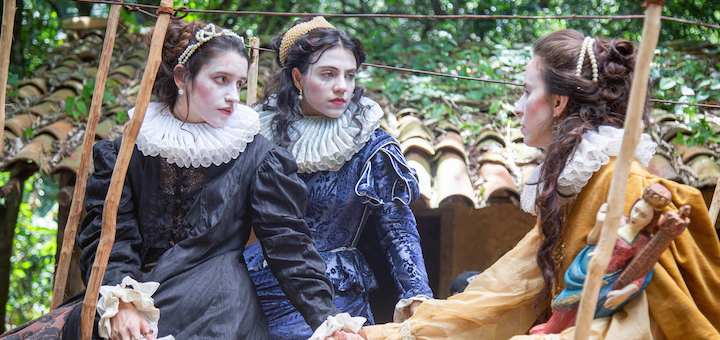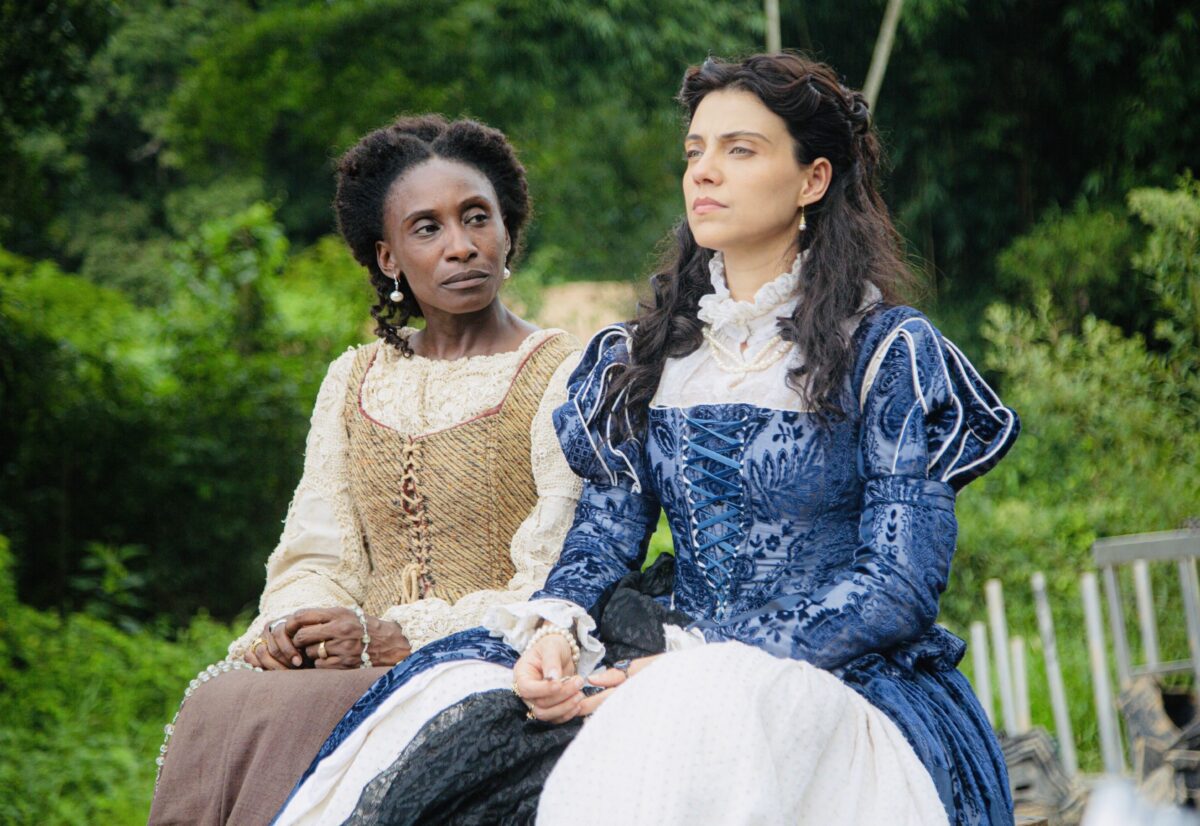The Inquisition hounded, marginalized, oppressed and slaughtered Jews in Spain and Portugal and in Spanish and Portuguese overseas colonies in Latin America. Its demonic depth and reach was such that even a remote hamlet in the jungles of Brazil could be directly affected by it.
Elza Cataldo’s intriguing Brazilian movie, The Queen’s Orphans, explores this explosive issue quietly but forcefully. It will be screened on June 7 at the Toronto Jewish Film Festival, which runs from May 30 to June 9.
One fine day in 1591, almost a century after the expulsion of Jews from the Iberian Peninsula, three lavishly-dressed young women — Mecia, Brites and Leonor — arrive in a flyblown hamlet. They have been sent to Brazil to be married.
Only later do we learn that this is a New Christian colony primarily inhabited by Jews who have formally converted to Christianity either under duress or voluntarily. Old Christians often contemptuously refer to them as “Marranos,” a derogatory word in the Spanish language.

As the Roman Catholic Church suspects, some New Christians have not shed their Jewish identity completely and have thereby committed heresy, a crime punishable by death. In one scene, an old woman named Tereja meets Leonor, whom she seems to know, and speaks to her in Hebrew. In another segment, Don Escobar, her grandson, retreats to a small room and dons a Jewish prayer shawl before chanting Hebrew prayers. And in a third scene, Don Escobar and his family gather for a festive Sabbath meal.
Not surprisingly, Mecia, Brites and Leonor wish to return to Portugal, their birthplace. Although they were born into a Jewish family, they were raised by Portugal’s queen in the Catholic faith. She treated them like daughters as a special favor to their parents, who were burned at the stake, along with other Jews. Mecia, Brites and Leonor do not know they were Jewish at birth, and wear jewelled crucifixes as an outward sign of their devotion to Christianity.
Despite their fealty to the church, the local priest doubts whether they are true Christians. “Don’t be careless with the faith” he advises Leonor.
After returning from a business trip in the city of Salvador, Don Escobar informs Leonor, his new wife, that the Inquisition has taken hold there. Having described the indignities he witnessed, he tells her he observes Jewish rites and rituals. She continues to wear a crucifix, though she appears drawn to Judaism.
The Inquisition sweeps over the hamlet when a grand inquisitor arrives to enforce the loyalty of New Christians to Catholicism. Dissenters can be identified, he says, because they keep the Sabbath on Saturday, chant Jewish prayers, refrain from eating pork and circumsize their sons.
In quick succession, a procession of intimidated locals single out residents who conform to that description. Marta, a woman of partial African descent, discloses that Leonor reads a “forbidden” book. Leonor herself denies that her husband works on Saturdays. Still more locals curry favor with the inquisitor by betraying their Jewish acquaintances.
Brites, having been called before him, is accused of frying food with olive oil rather than lard.
A sympathetic priest who works for the inquisitor advises the three women to flee.
The Queen’s Orphans paints a picture of religious intolerance in a closeted era when faiths other than Christianity were frowned upon or forbidden. It is not a pretty picture.
